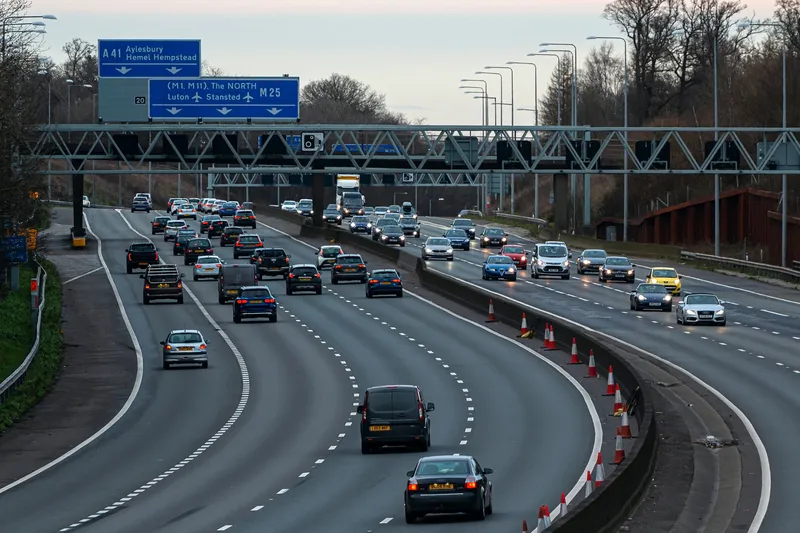
The UK's Transport Select Committee wants a pause on the roll-out of all-lane running motorways until five years of safety data is available.
Earlier this year, following several deaths, a UK coroner called for a review of the safety of such highways, which typically feature no hard shoulder.
In a new report, the committee is calling on the Department of Transport (DfT) and National Highways to halt these deployments until data over this period of time is available for the remaining 112 miles of all-lane running motorway introduced before 2020.
The committee says the UK Government's decision in March 2020 that all new smart motorways will be all-lane running motorways was premature.
Rollout and safety of smart motorways says the DfT and National Highways should retrofit emergency refuge areas to existing all-lane running motorways to make them a maximum of 1 mile apart, decreasing to every 0.75 miles where physically possible.
It is also urging both parties to insert the emergency corridor manoeuvre into the Highway Code to help emergency services and traffic patrol officers to access incidents when traffic is congested.
The committee also wants them to commission the Office of Rail and Road to conduct an independent evaluation of the effectiveness and operation of stopped vehicle technology.
According to the committee, the office should also evaluate how successful the Government's action plan has been in reducing incidences of live lane breakdowns on all-lane running motorways and reducing the time for which people who breakdown or stop in live lane are at risk.
The document points out that dynamic hard shoulder motorways “apparently confuse” drivers because it is used unpredictably to tackle congestion.
A more consistent approach, where the hard shoulder is used at known times, could clarify the situation for drivers without physically removing it.
The report advises the DfT and National Highways to pause plans to convert dynamic hard shoulder motorways until the next Road Investment Strategy. It also suggests they use the intervening period to trial alternative ways in which to operate the hard shoulder to make the rules less confusing.
The committee claims that controlled motors, which retain the hard shoulder and have the technology to regulate traffic, have the lowest casualty rates of all the types of motorway on the strategic road network.
Therefore, it urges the DfT to carefully consider how the business case for them compares with that for all-lane running motorways.
The group concludes by saying that it is not convinced that reinstating the hard shoulder on all all-lane running motorways will improve safety as the evidence suggests that doing so could put more drivers and passengers at risk of death and serious injury.










